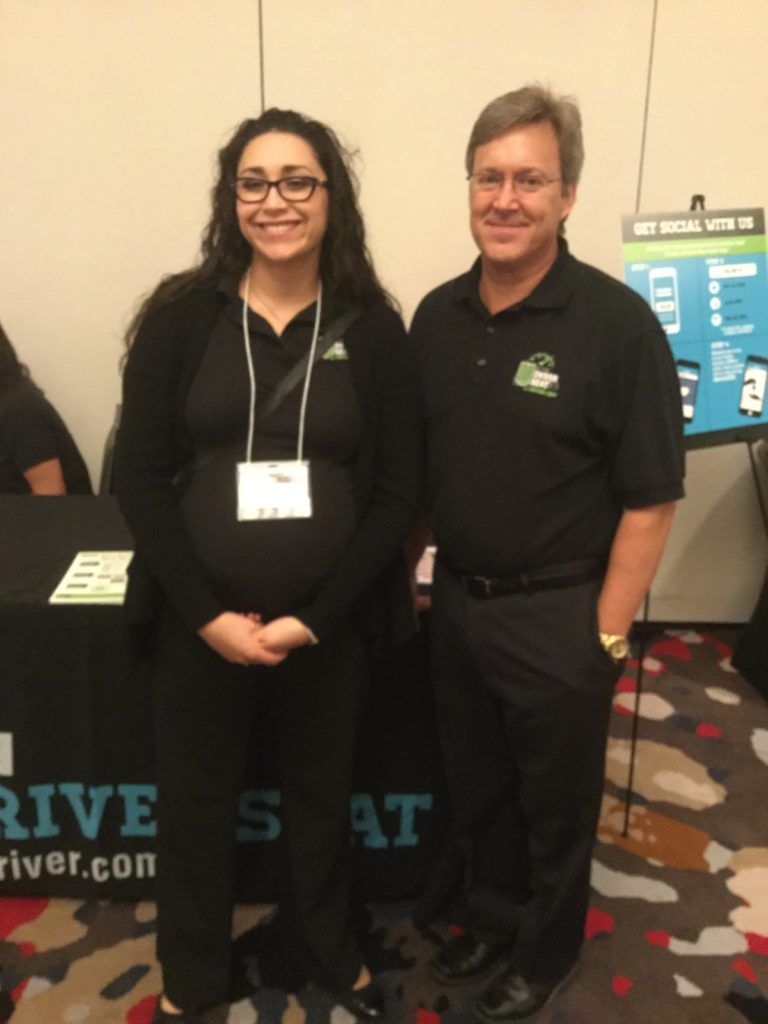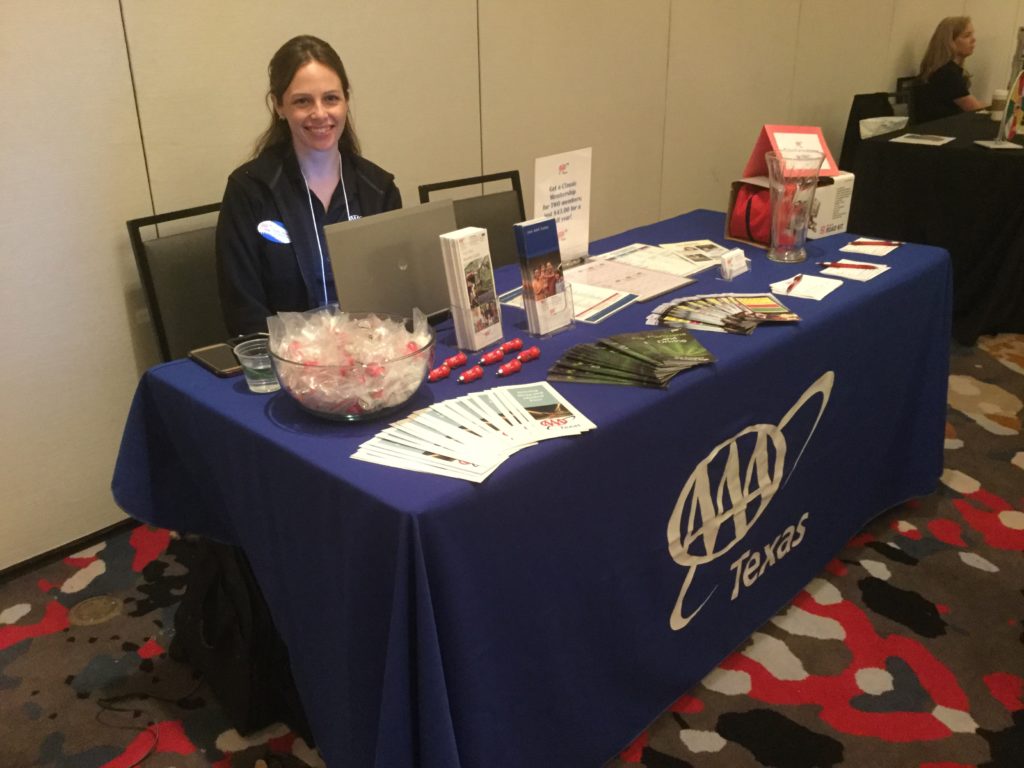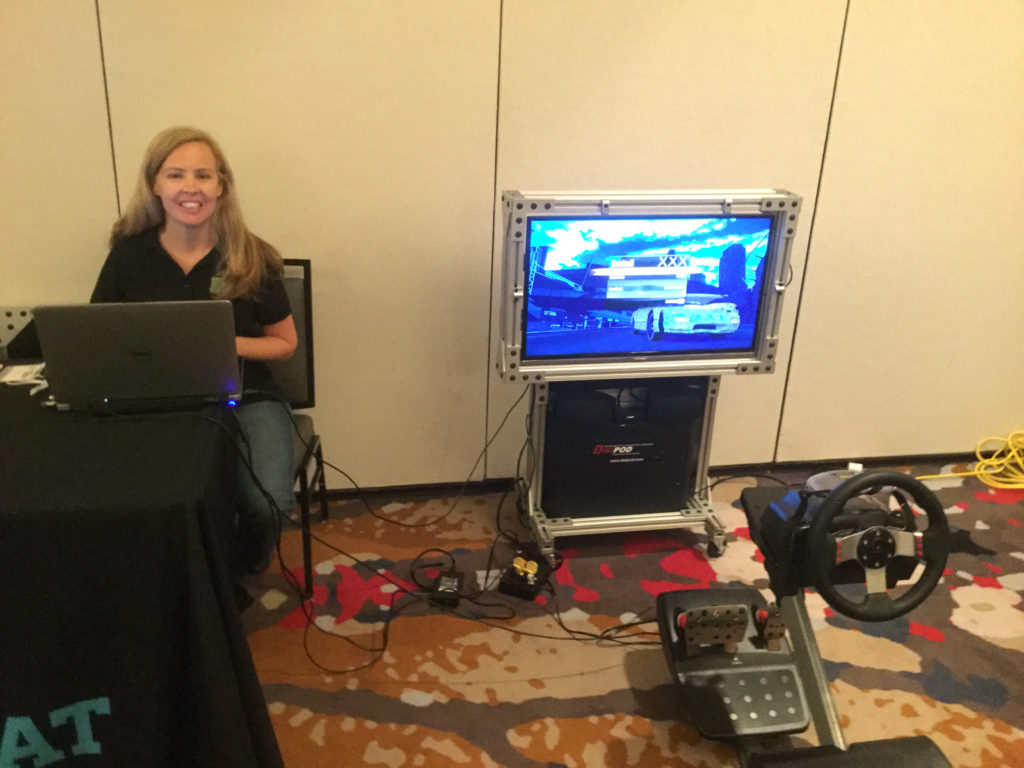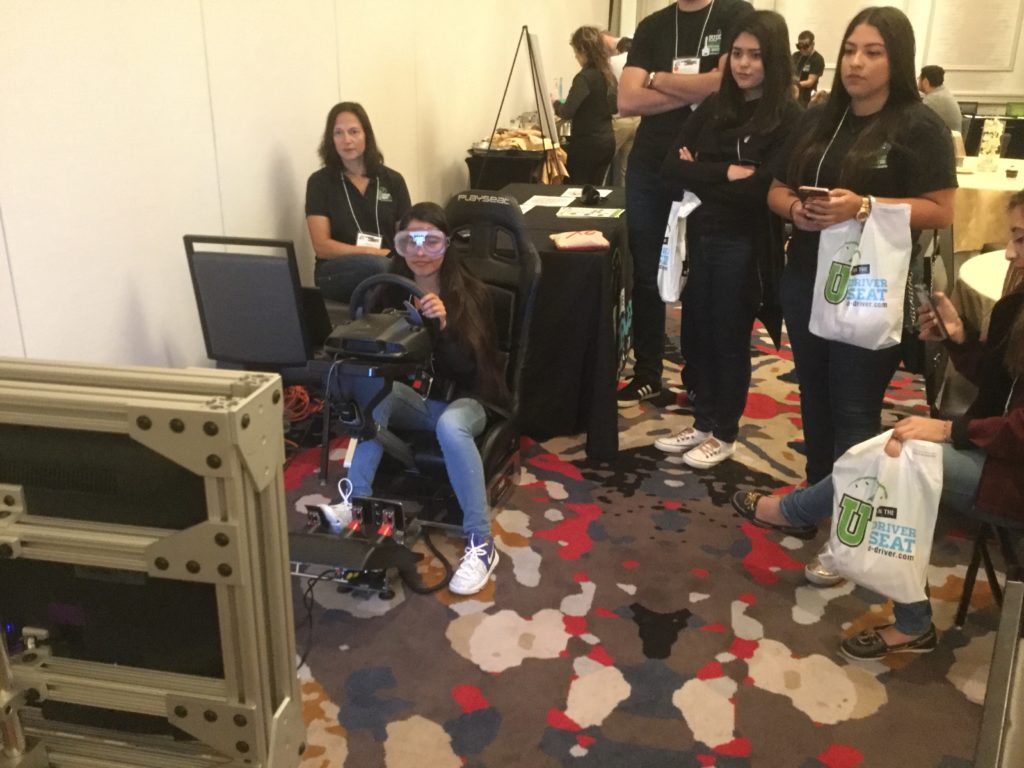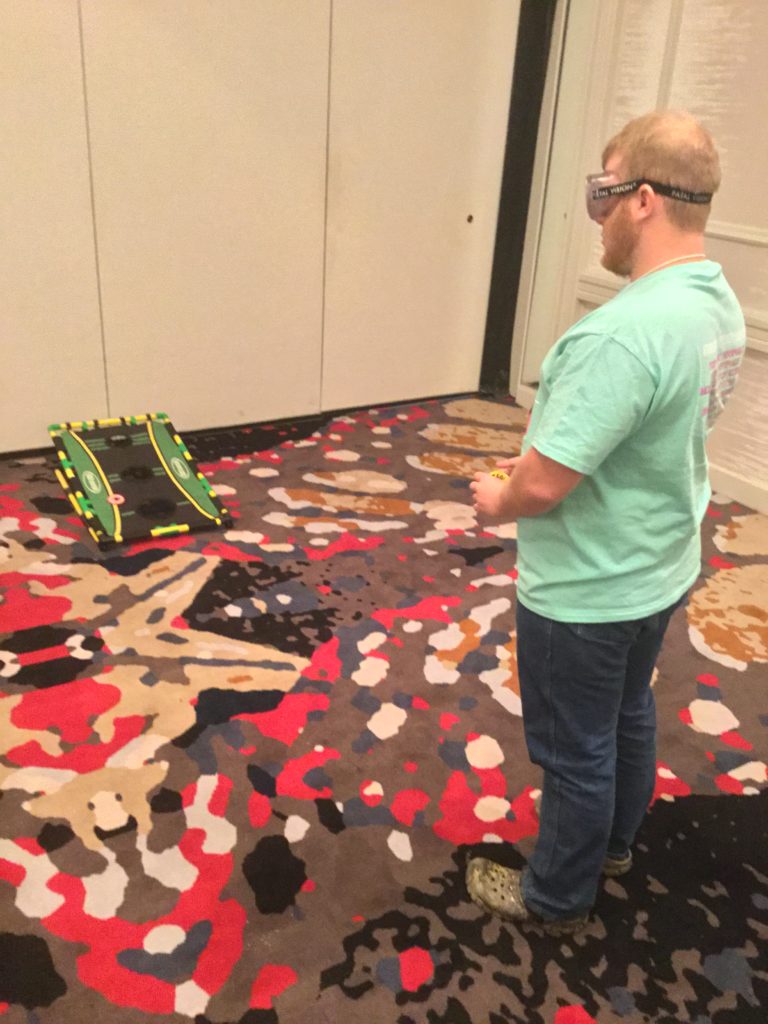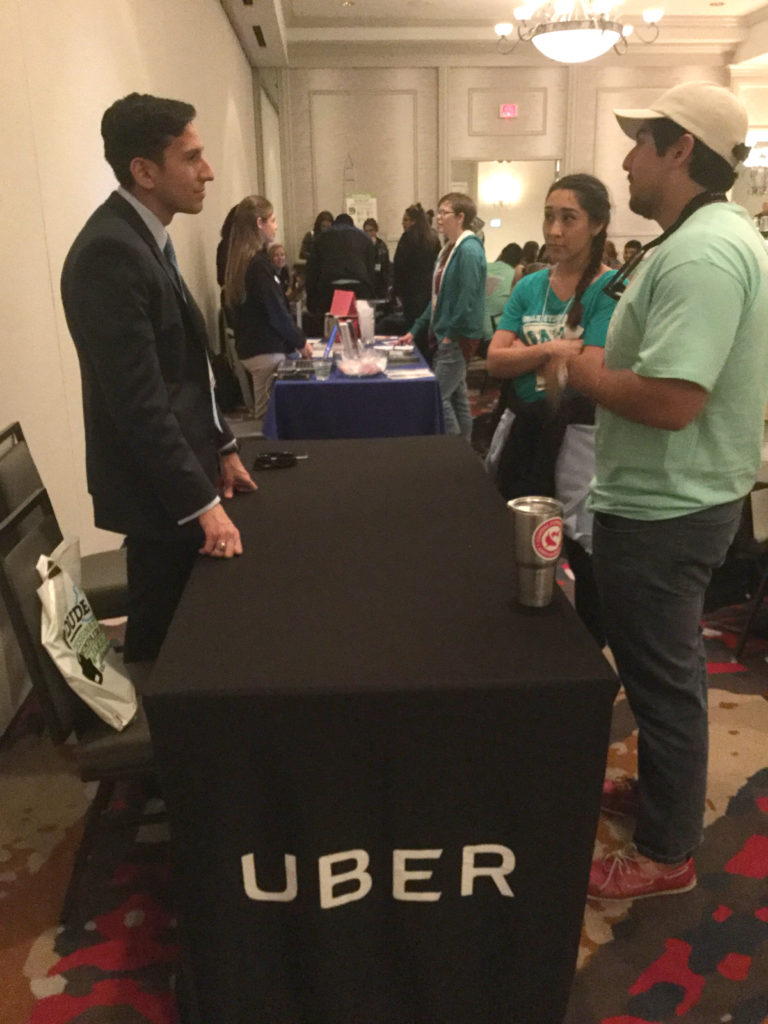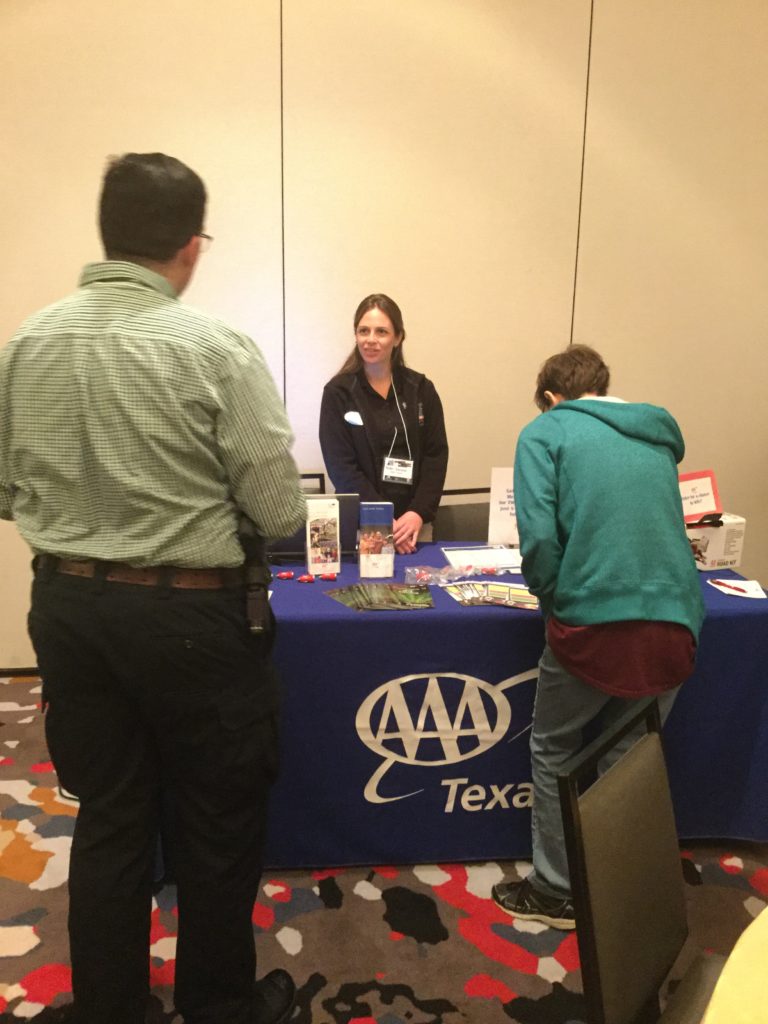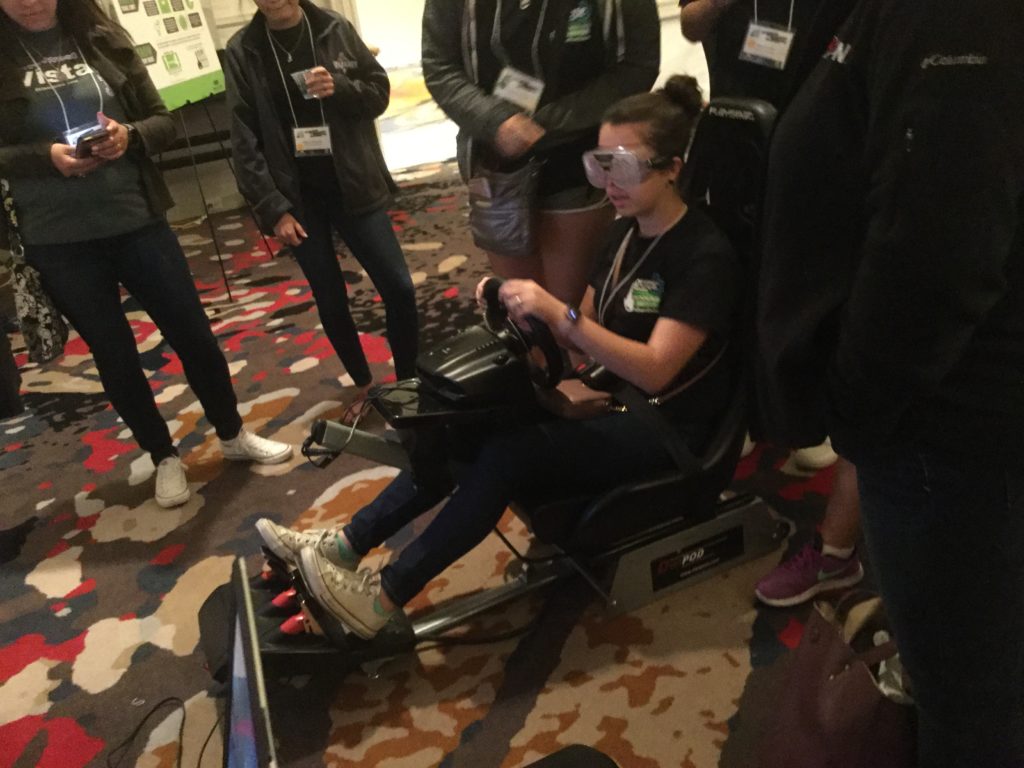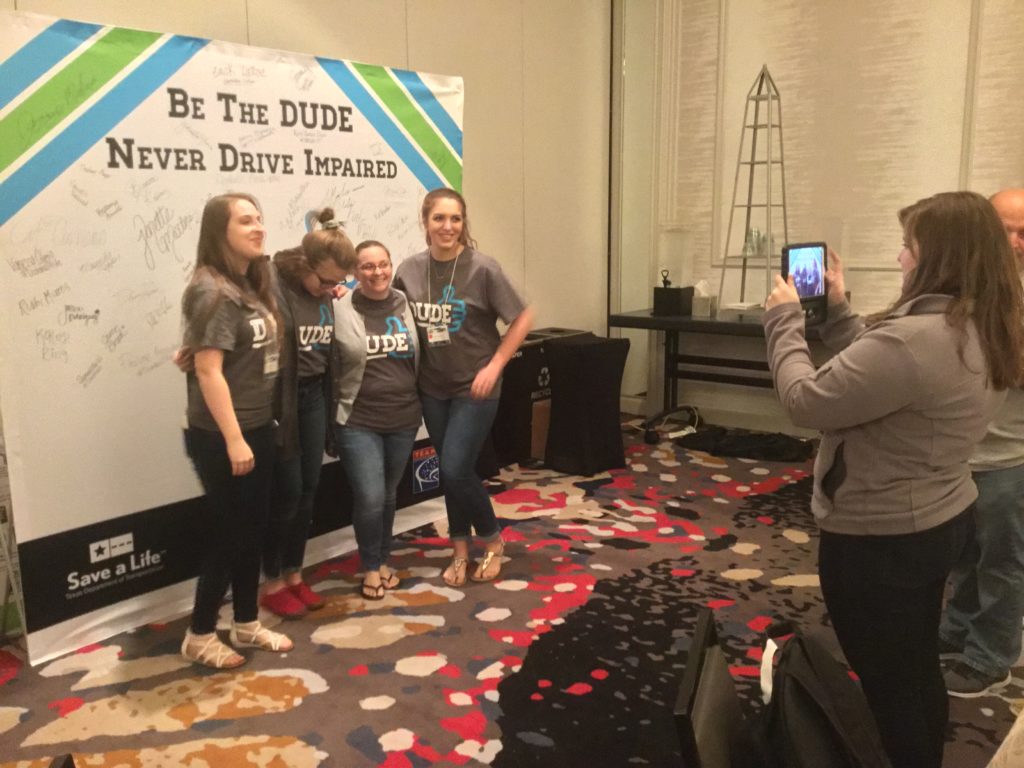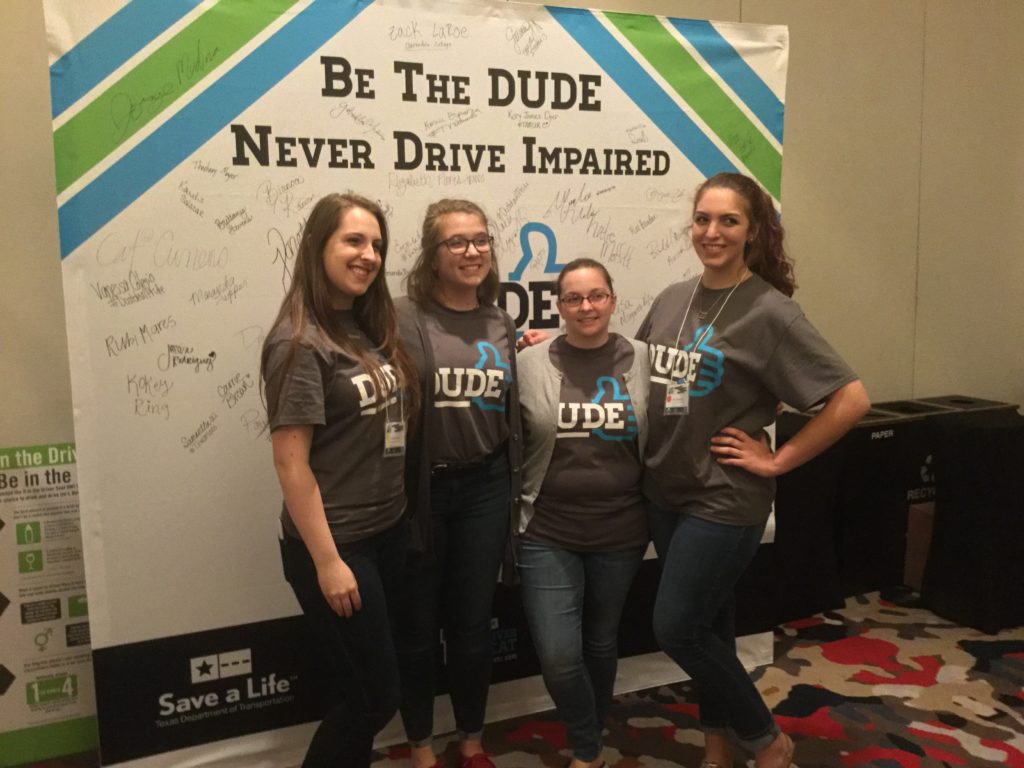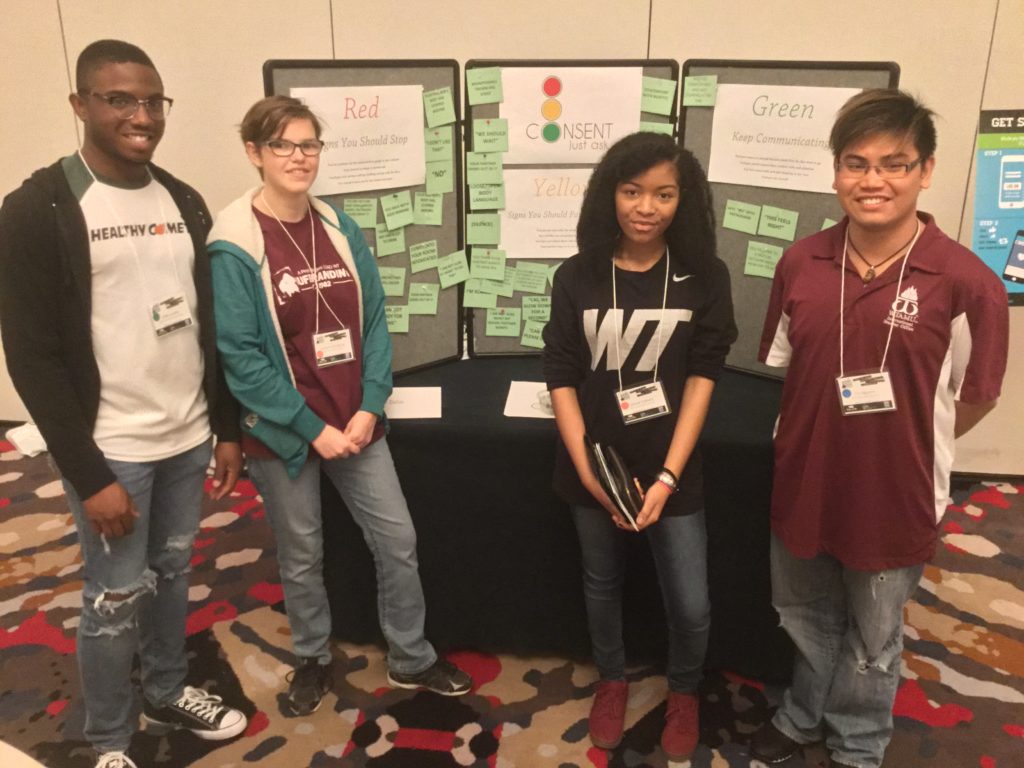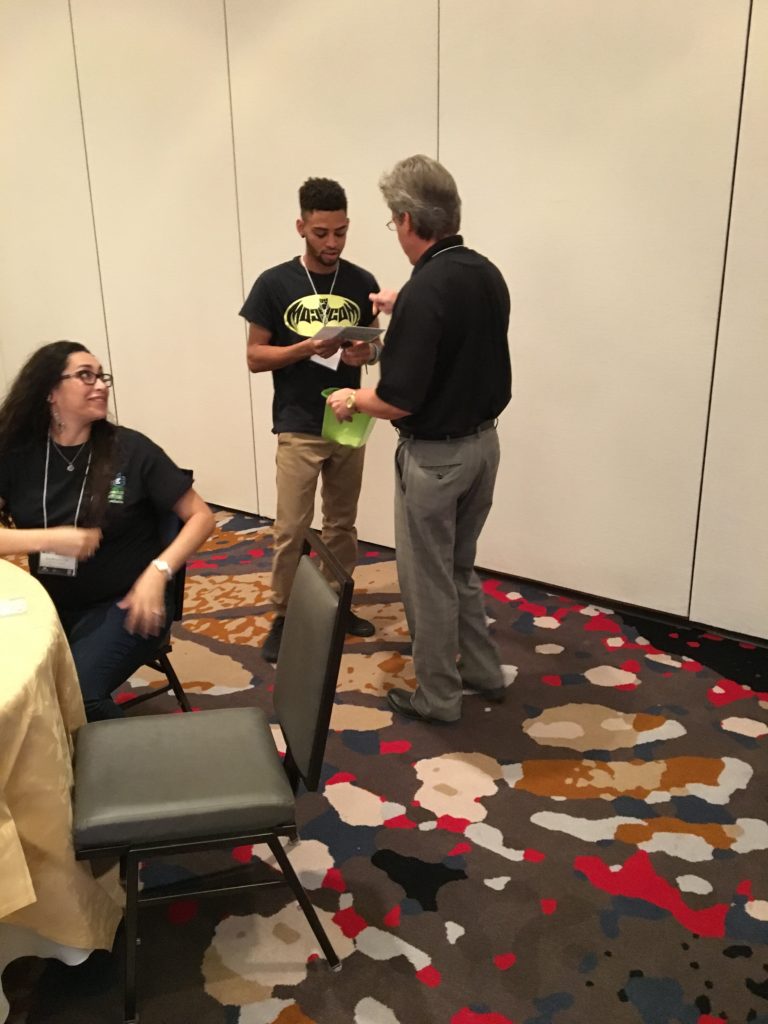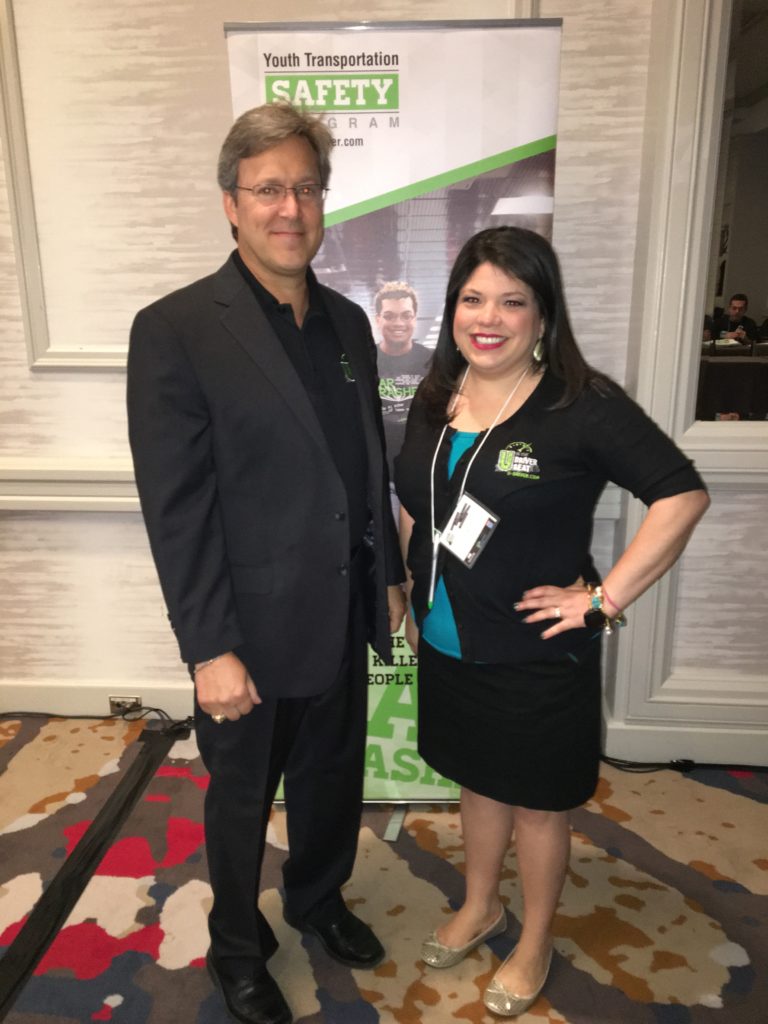The U in the Driver Seat (UDS) Program at Texas A&M Transportation Institute (TTI) held its annual Peer-to-Peer Impaired Driving Prevention Symposium in Austin, Texas, April 6-8, 2017. With the support of both public and private entities, the Symposium was available at no cost to over one hundred college-aged students representing sixteen different colleges from across Texas.
For the second year, UDS partnered with Techniques for Effective Alcohol Management (TEAM), a 501c(3) non-profit coalition recognized nationally for promoting responsible drinking at sports and entertainment events.
“TEAM Coalition and all our member organizations are thrilled to partner with the Texas A&M Transportation Institute and U in the Driver Seat,” said executive director of TEAM, Jill Pepper. “Reaching college students with traffic safety messages is the key to instilling safe behaviors when it comes to alcohol and driving.”
In 2016, there were 10,859 crashes in Texas involving young drivers (17-25 years of age) who were driving under the influence of alcohol or drugs, which led to 418 fatalities and 734 serious injuries. “The statewide statistics bear out that college-aged drivers are dying unnecessarily on Texas highways,” stated Russell Henk, program director of U in the Driver Seat and manager of TTI’s Youth Transportation Safety Program. “Our annual symposium informs students about how impairment can negatively impact their driving skills and aims to improve those statistics by changing behaviors.”
Choosing to driver sober and stay sober is one behavior change UDS encourages. Another, is choosing to find a safe ride home when impaired. Uber, the nationally recognized ride sharing company, came on as a sponsor of the 2017 Symposium, showing their dedication to reduce impaired driving car crashes.
“More information and more options regarding how to get home safely after a night out can help people make better decisions,” said David Brightman, General Manager of Uber’s Central Texas operations. “We’re excited to partner with these young community leaders to get that information out there.”
The symposium featured speakers, breakout sessions, and interactive activities targeted at convincing college-aged drivers around the state of Texas that they have the power to change risky driving behaviors — in effect, to save their own lives and the lives of other drivers and passengers on the road. Breakout sessions, for example, addressed how students can take the lead on their local campuses to positively influence their peers and debunk myths associated with drugs and alcohol and their effects on drivers.
Thanks to generous support from the Texas Department of Transportation, TEAM Coalition, and Uber the conference was a success. Now in its fifth year, the UDS program hopes to continue work with both public and private organizations to tackle the issue of impaired driving in Texas.

